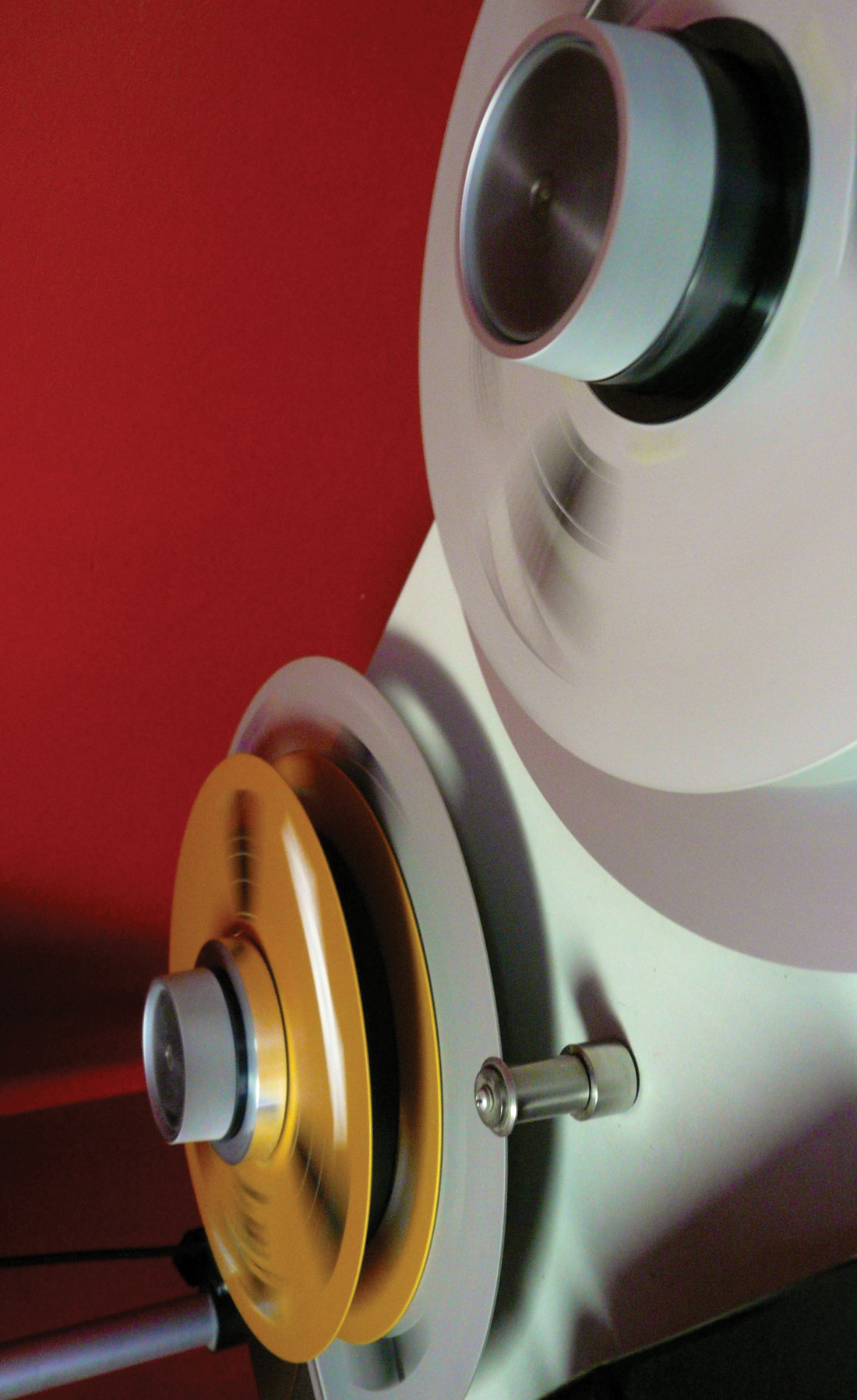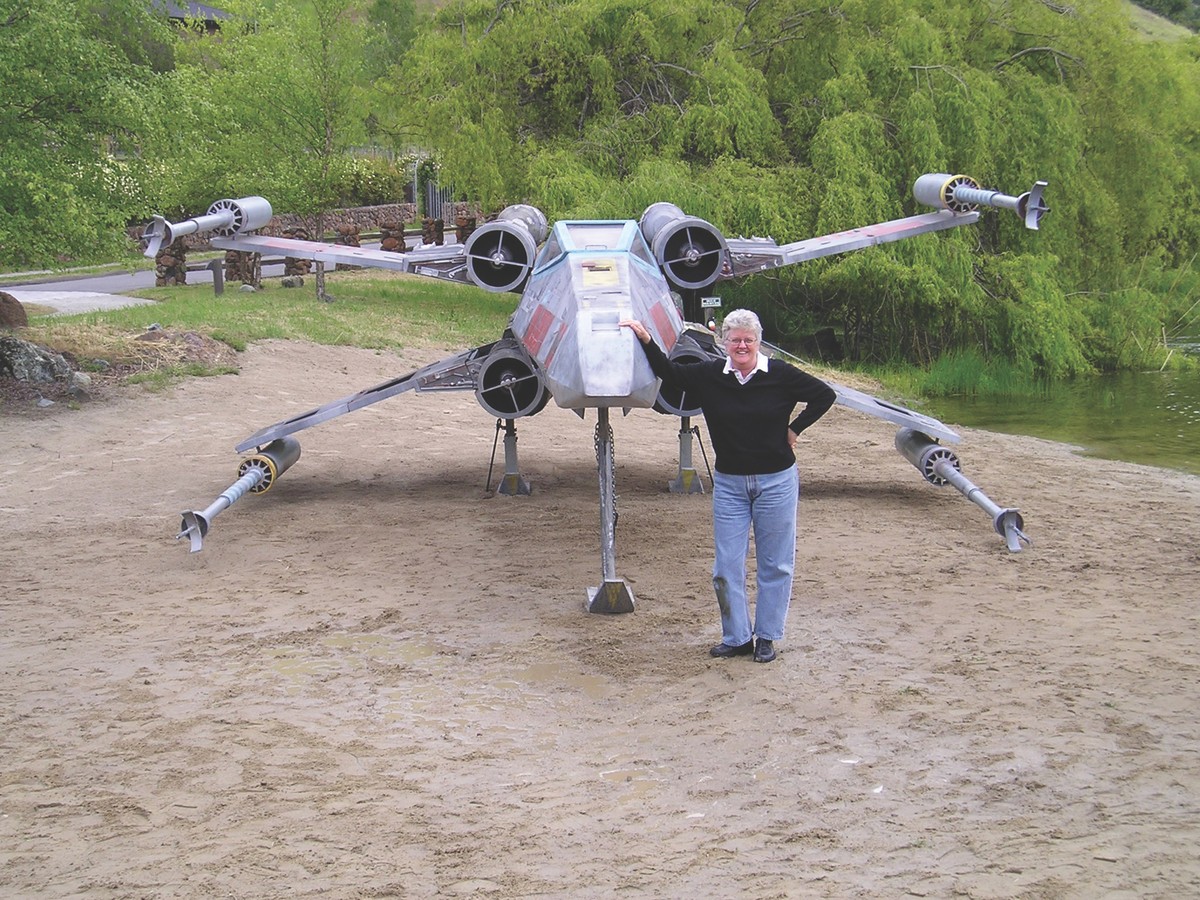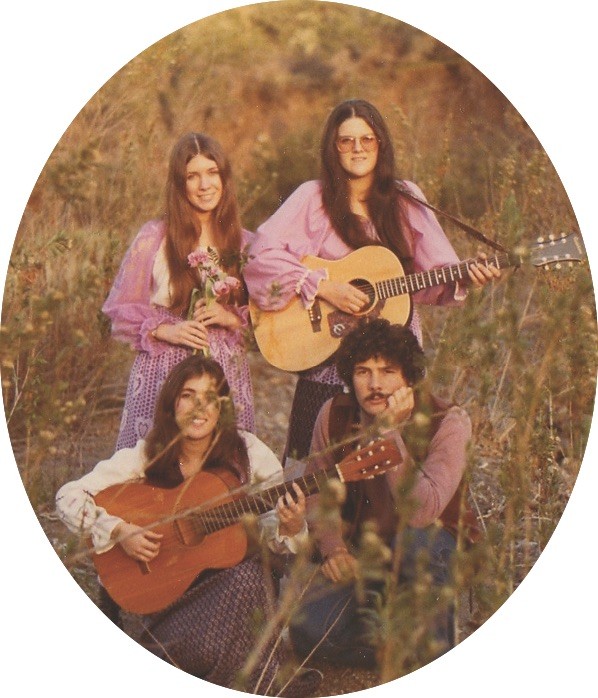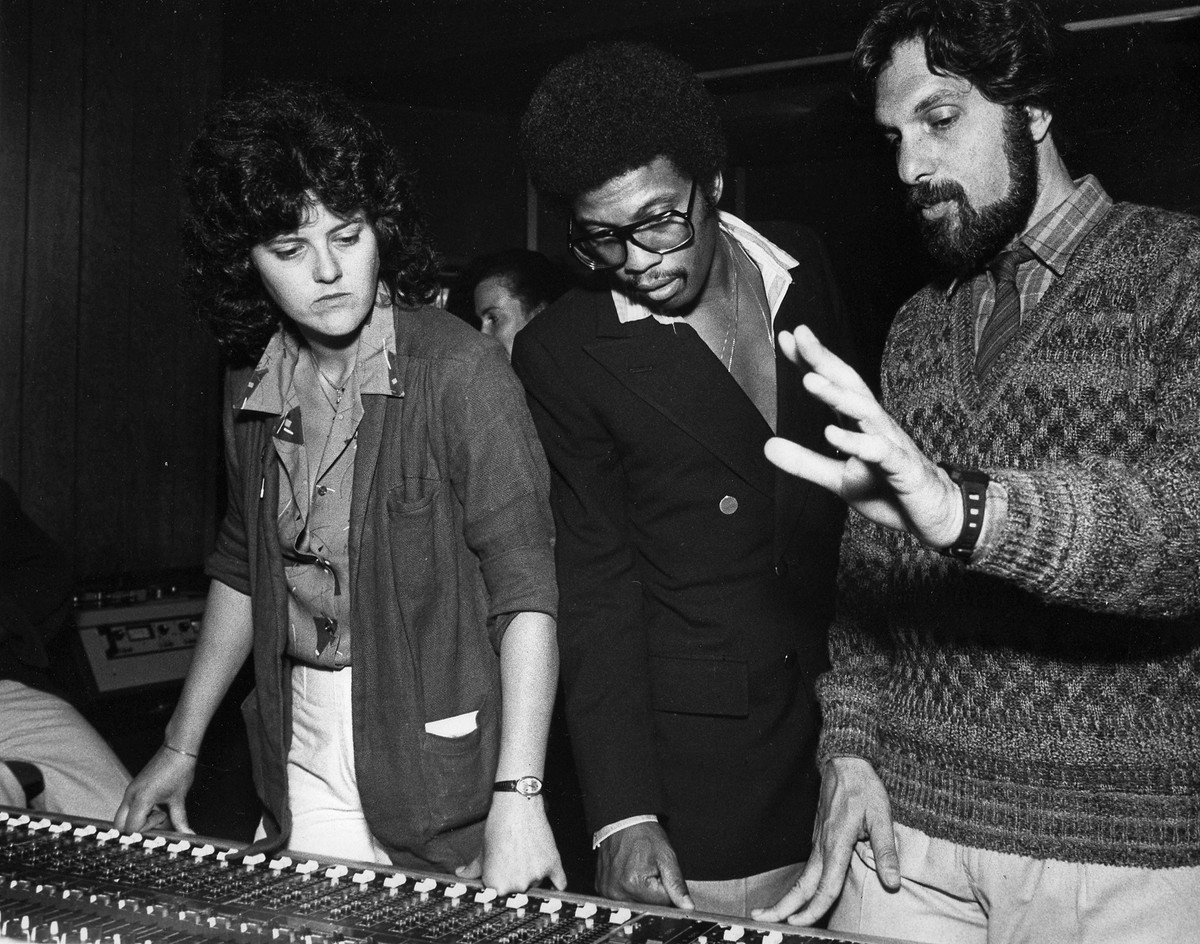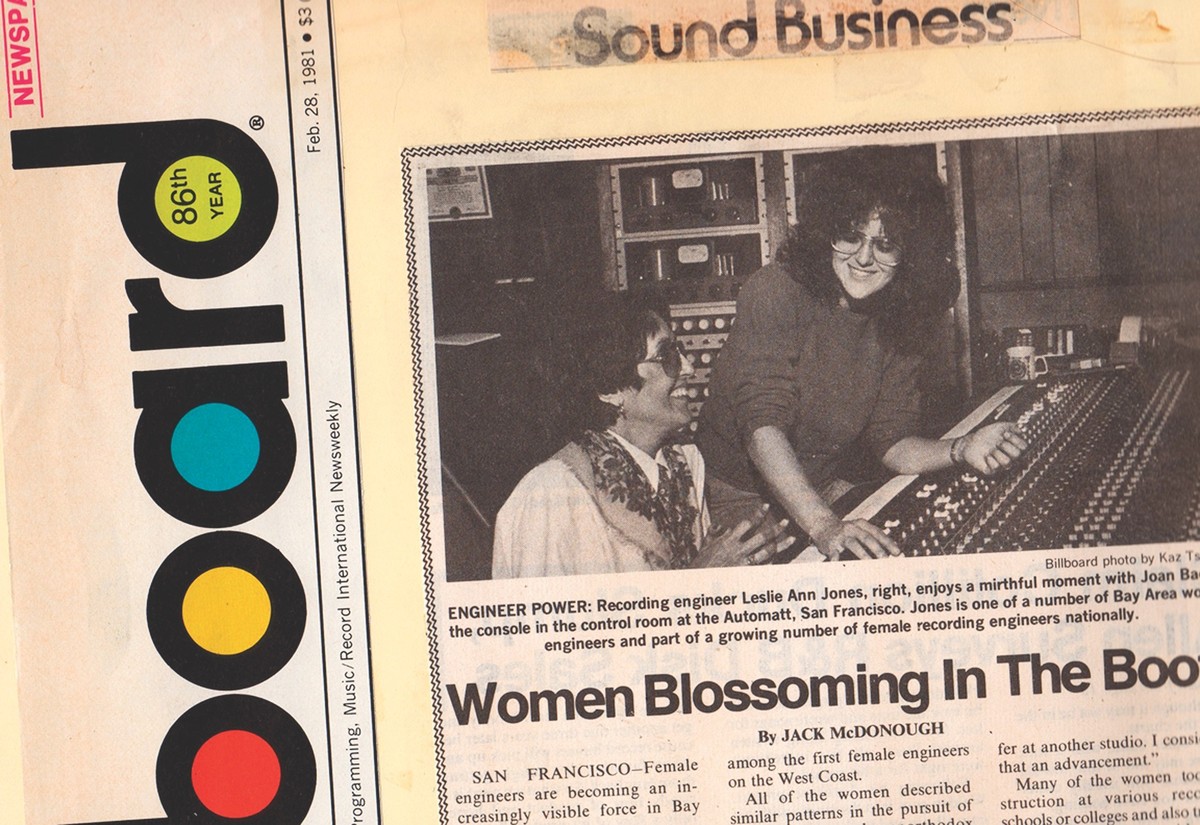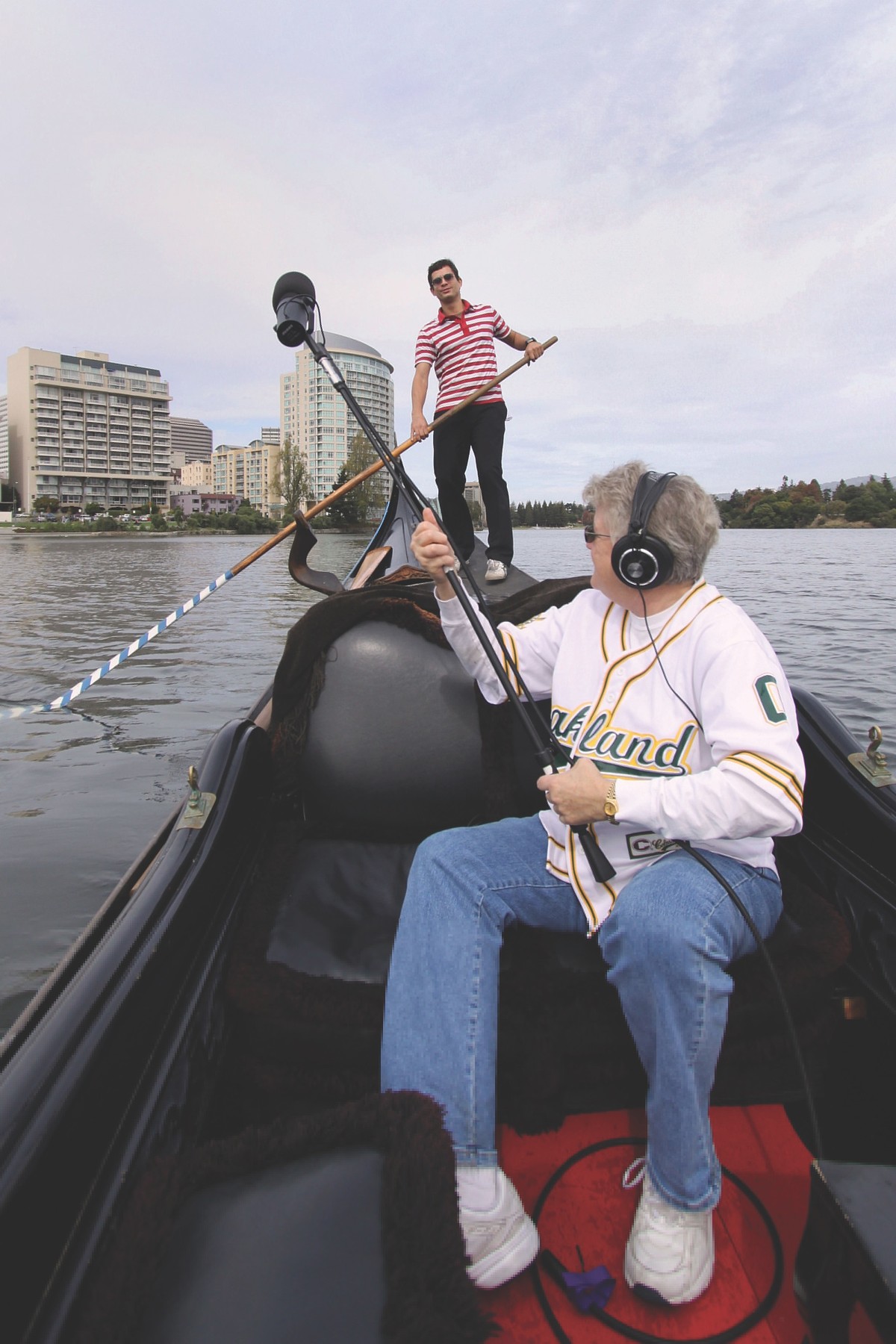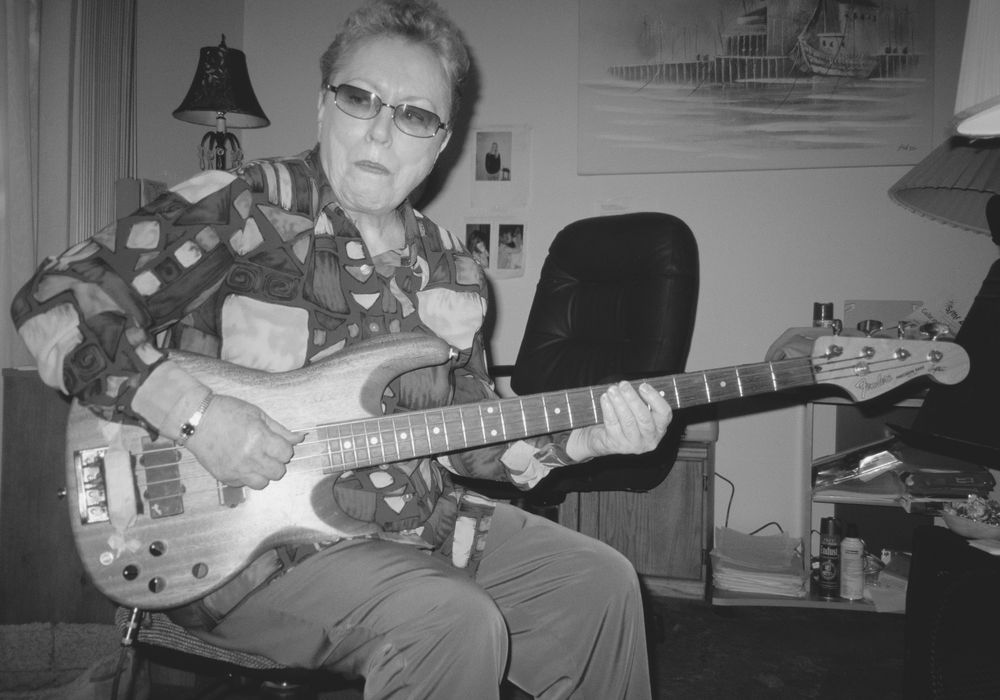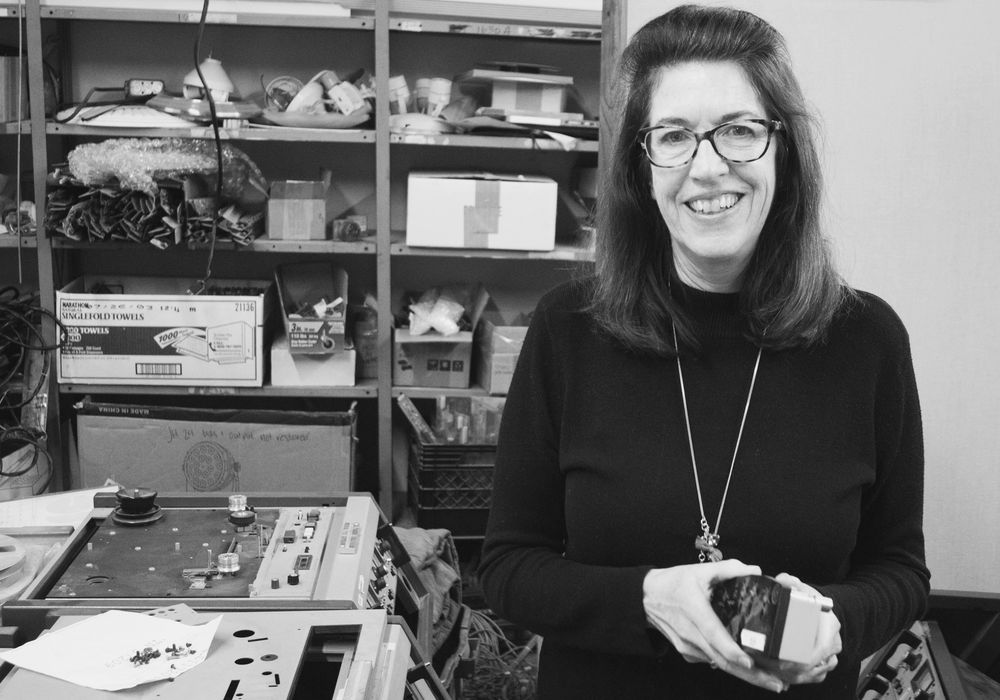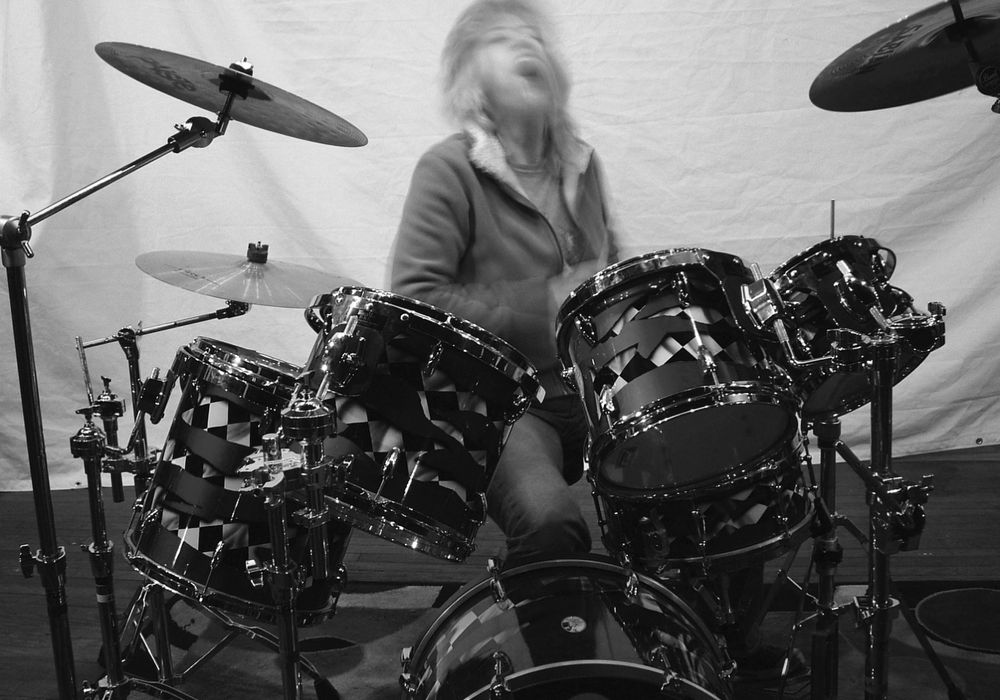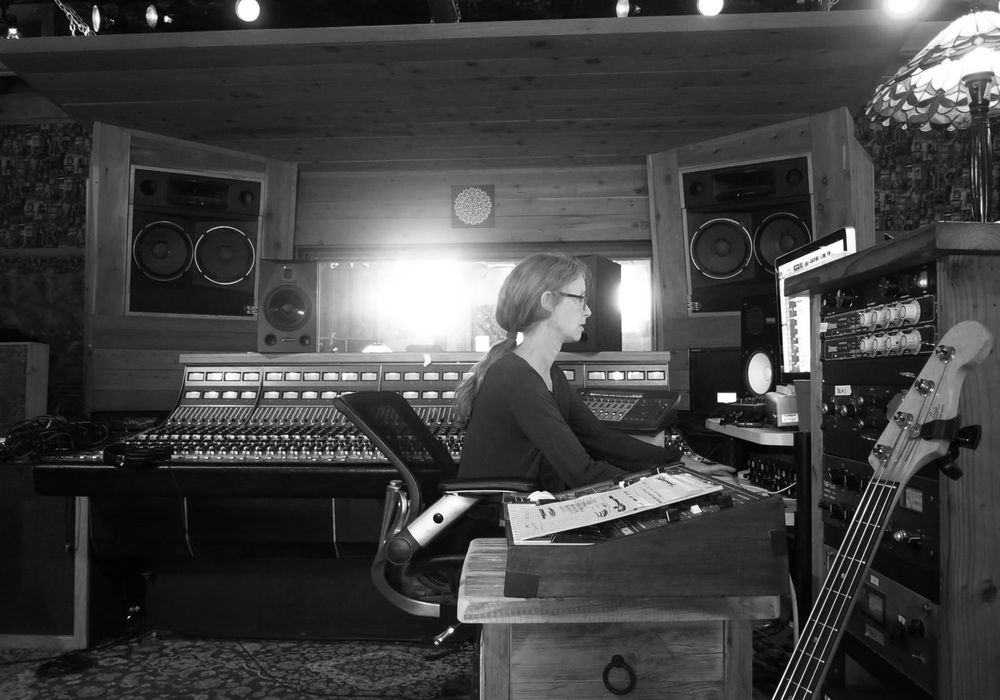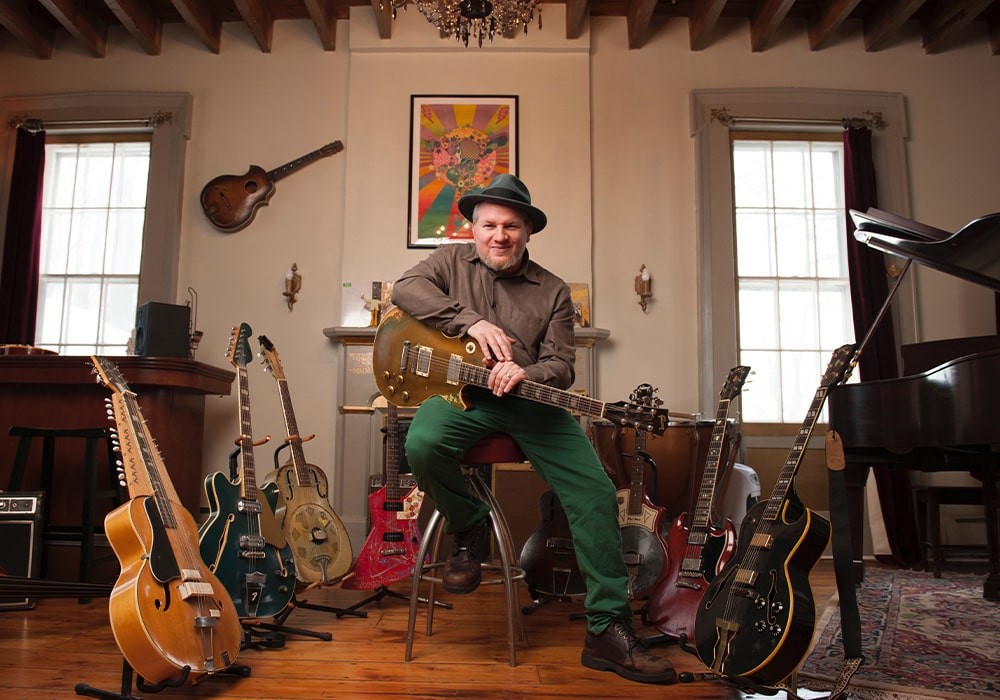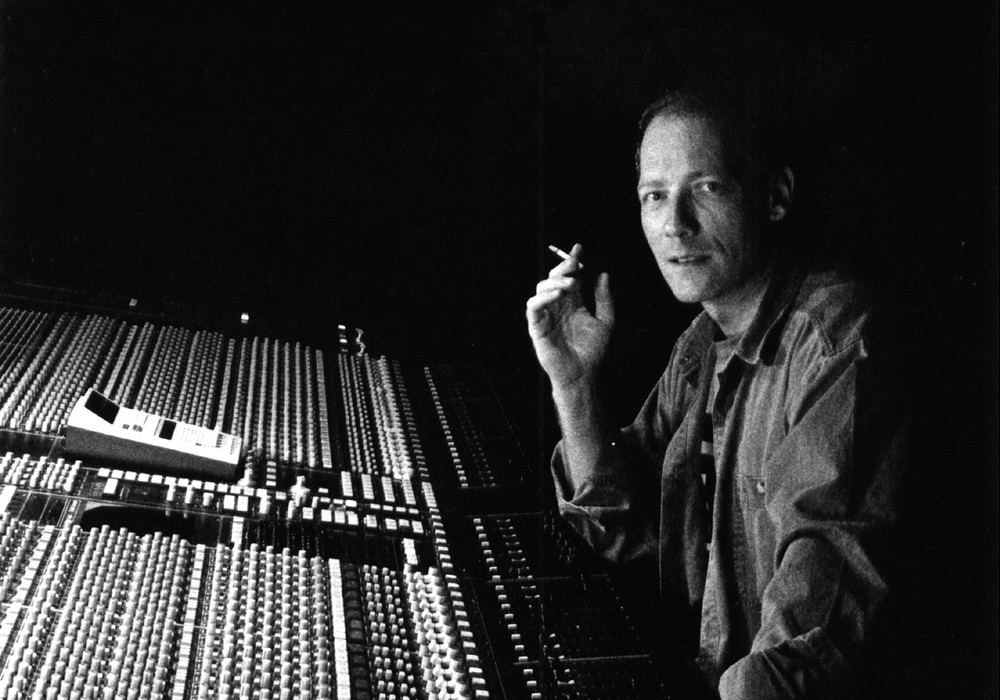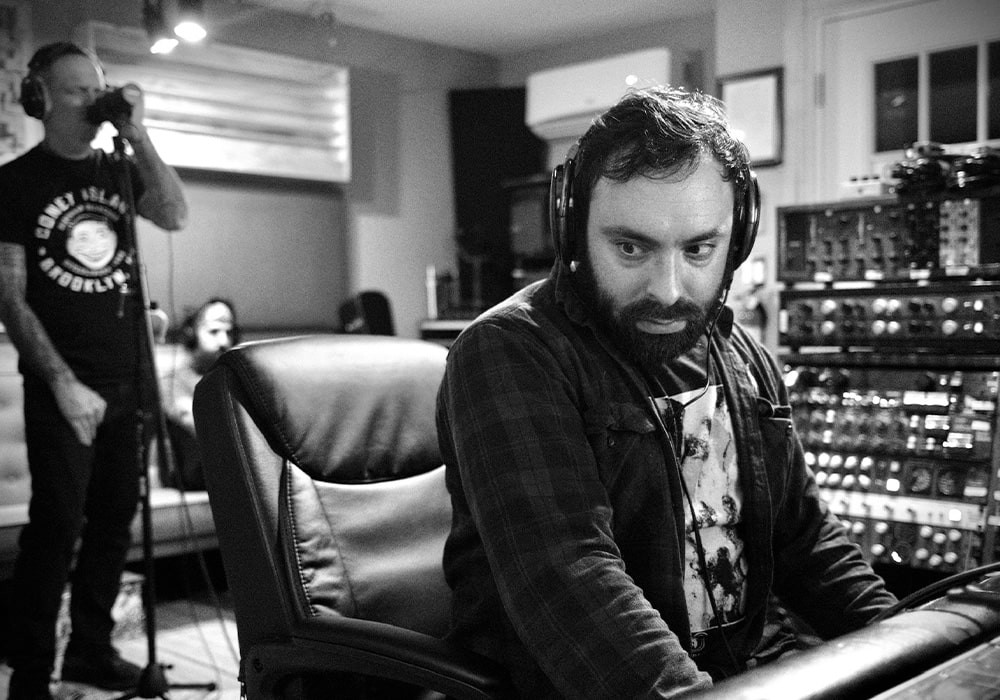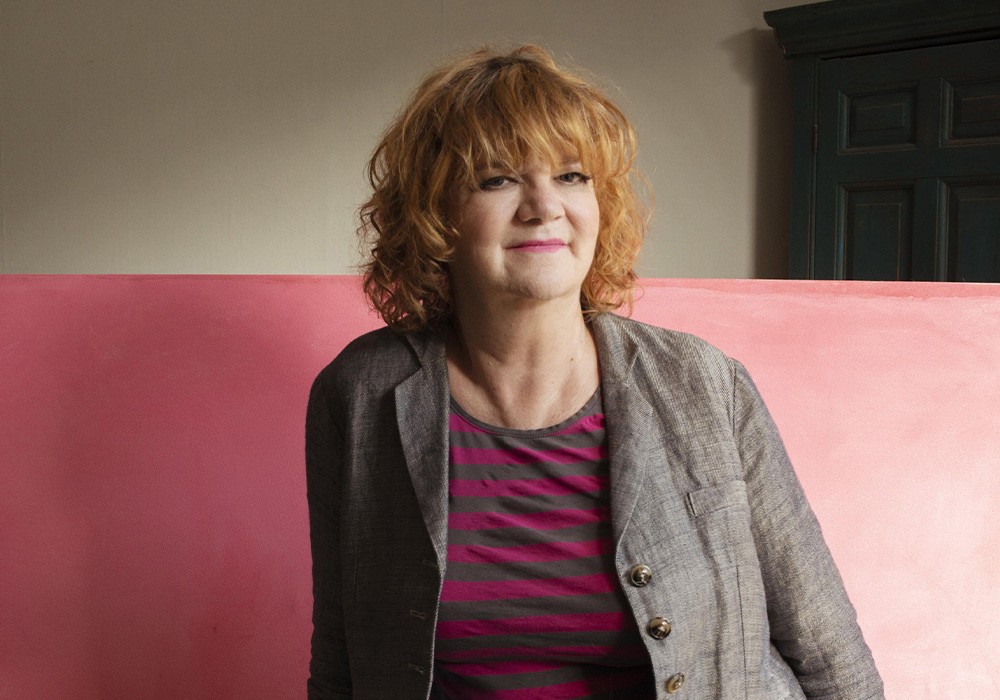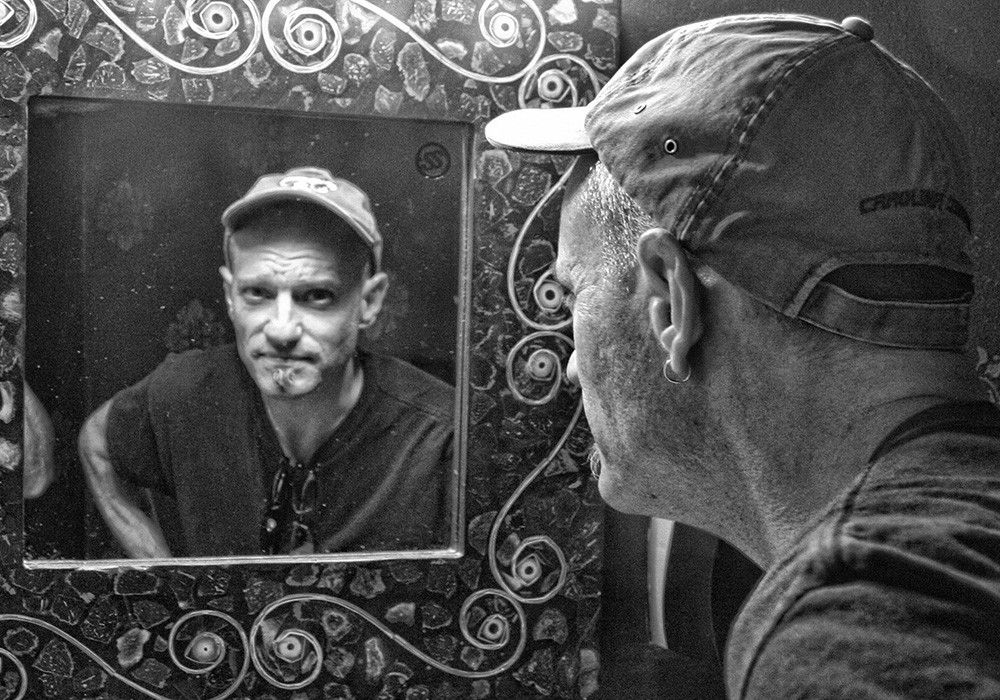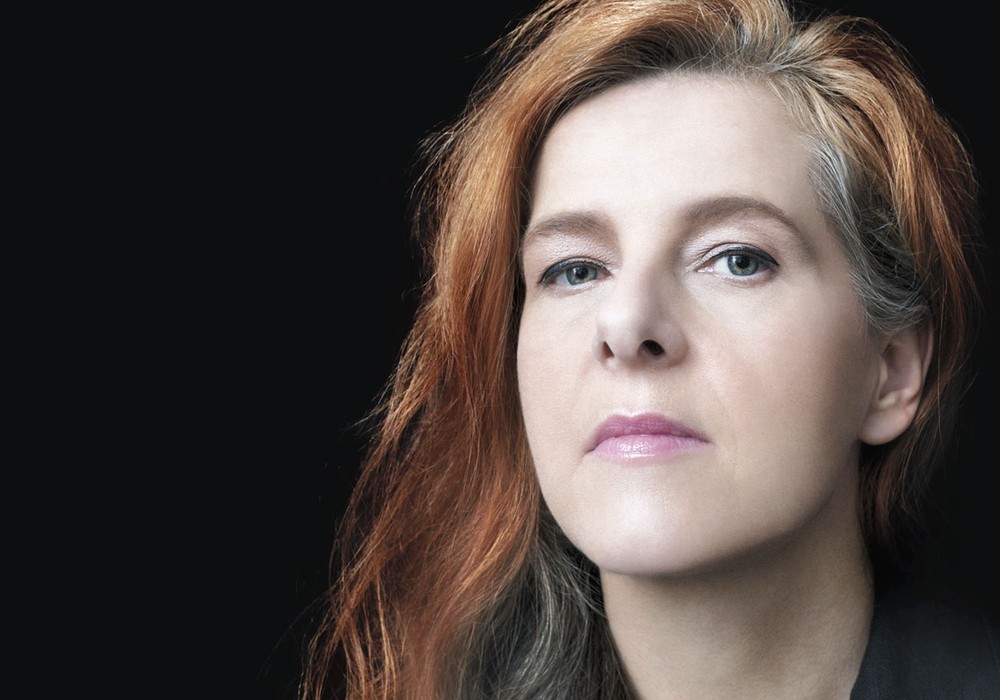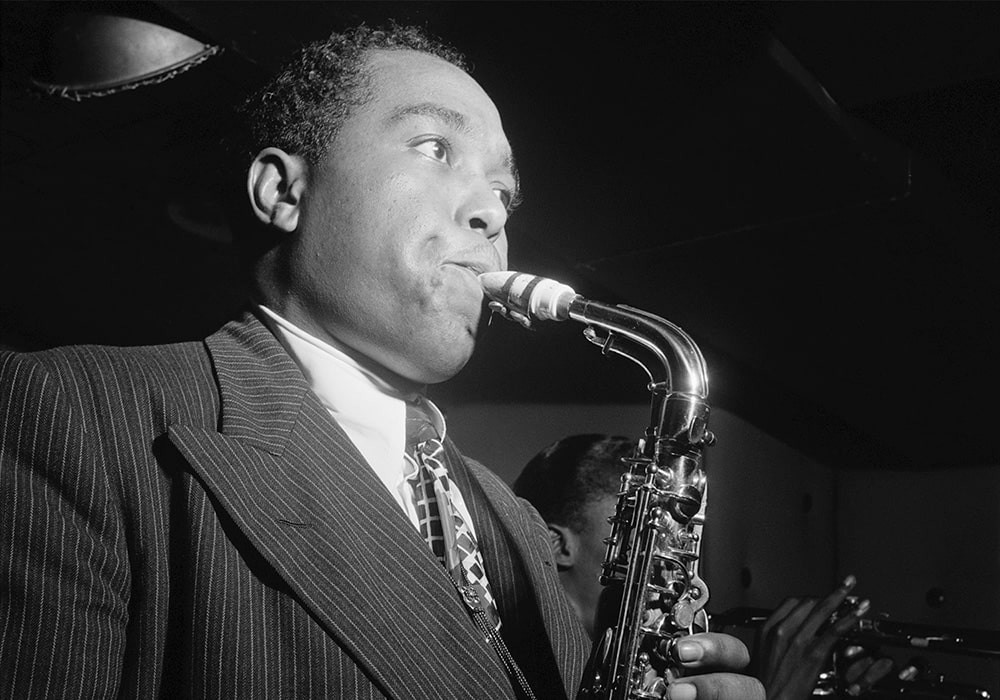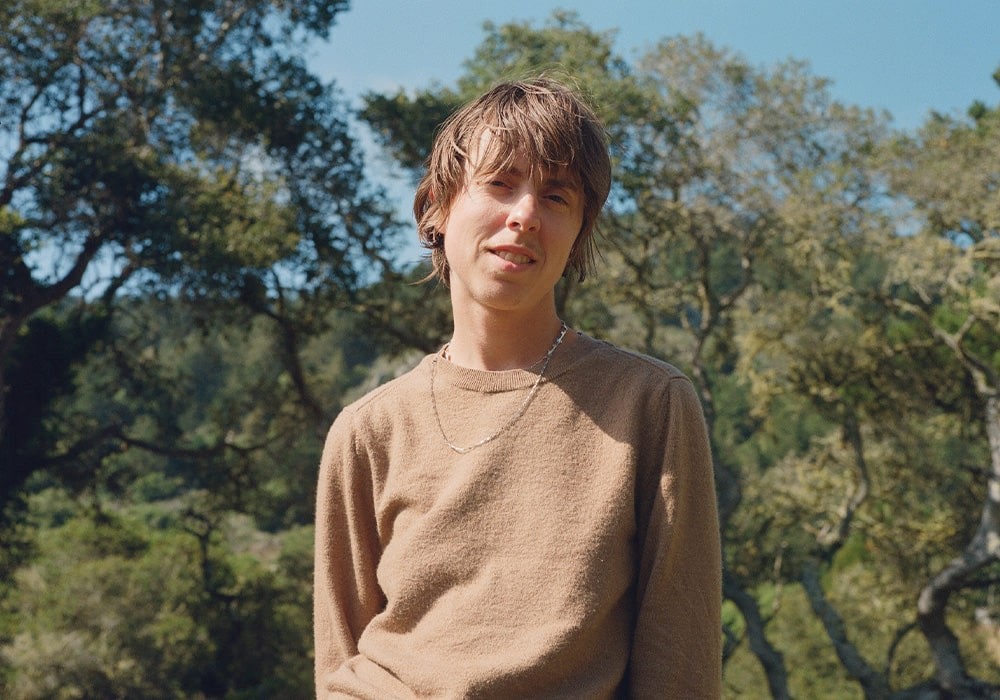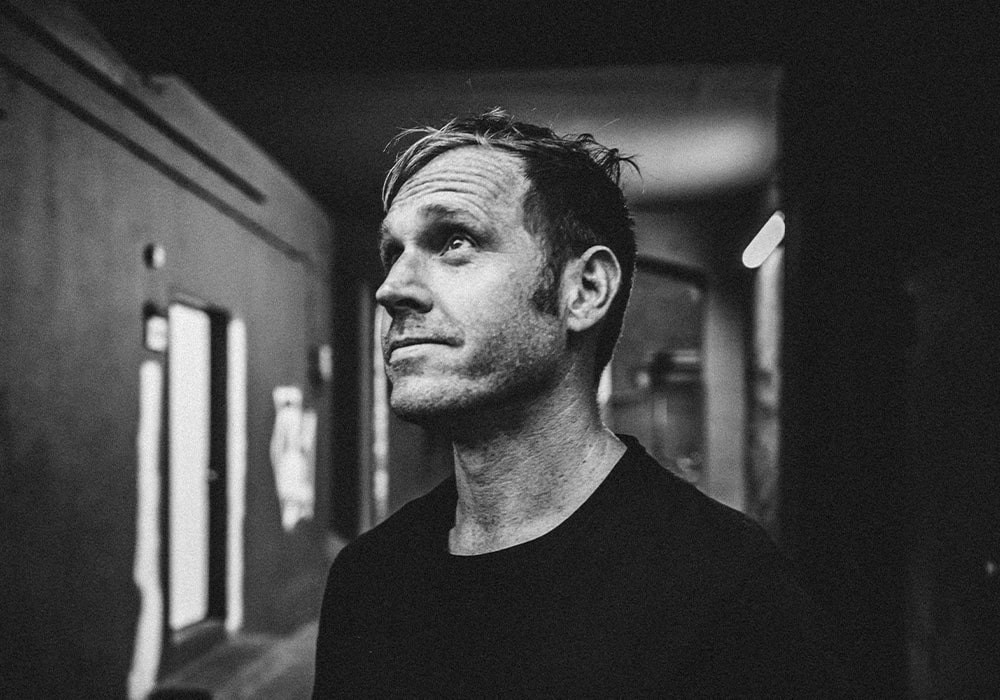The audio business is deeply personal for me, as it is for many of us. When I first met Leslie Ann Jones in 1991, I was thrilled to finally meet a female engineer. To see a woman in the boys' club and seeing her outshine the boys has been inspirational to me.
She is a multiple Grammy Award-winning recording engineer working as Director of Music Recording and Scoring at Skywalker Sound, a Lucasfilm, Ltd. company. She is the daughter of novelty drummer, percussionist and bandleader Spike Jones and his wife, singer Helen Grayco.
But to categorize Leslie Ann Jones as noteworthy because she's a woman is insulting. She is one of the most revered engineer/producers of her generation. She is extraordinarily competent with a keen sense of humor and enormously generous to her associates. I learned a great deal in the time that I spent with her.
What I also discovered was how respected she is by her peers. One recordist told me, "I strive to be like her every time I enter the studio." She has also been remarkably generous and involved with the audio community, having served in leadership positions with SPARS and NARAS and donating her time each summer to teach recording to girls at the Institute for Musical Arts in Massachusetts.
She was, and still is, my role model.
I wanted to talk a lot about your background — your childhood, your father and how that affected who you are now.
We traveled when we were younger, before we were in school. Then once we were in school, we only traveled with him during the summer breaks. So we'd spend a lot of time in Las Vegas and Lake Tahoe — places like that. My parents performed on a ship on the way to Hawaii, and then performed at a hotel in Hawaii for a couple of weeks, so the whole family went, including my grandparents. That was fun.
Did you have interest in music as kid?
You know, I did, but not in any really specific way. I just remember being around music all the time. There wasn't really much for us to do at night when we were in Las Vegas, except to go watch my parents' show, or go see other people perform. So I was just surrounded by music quite a bit. My dad had a very eclectic record collection, ranging from Elvis Presley to classical music to Brazilian music and percussion music. My mom was a big fan of the great singers of her day. So we'd sit in her car on our way to church listening to Barbra Streisand, Tony Bennett or Frank Sinatra — I never was too far from it.
Did you ever go to a studio with your father when he was recording?
He did most of his recording before I was born. I recall spending more time in the television studio. At that time there were what were called summer replacement shows, so he had a summer replacement for The Danny Thomas Show. The tapings were every Thursday or Friday, and we'd go down to CBS Television City in L.A. and watch the taping of his show. Sometimes I'd go with him to radio interviews. But I actually do not recall ever being at a recording session with him.
How did you become a recording engineer?
Well, my father died just before I turned 14. I shortly thereafter ended up getting an electric guitar and a small amp and started playing. Then I was in a group with my cousins, and I was a singer and guitar player. It was kind of a folk vocal group. So we did a lot of recording when I was a teenager. We had a producer, Michel Rubini, who was Sonny and Cher's musical director. He took us under his wing, and was able to tack on our sessions at the end of other ones that he was doing. So during my teenage years we spent a lot of time recording what were called "sides". We'd do four sides. We were lucky to have some of the greatest session players in the record industry at that time on our records — in fact, I saw the movie recently, The Wrecking Crew, and many of the people in that group of musicians played on our records. But nothing was ever released. It was kind of the sad Hollywood story of the A&R guy that liked us getting fired, or the label we were signed to was sold and all the new label wanted were the bigger artists. Eventually I was with a band that I had bought a PA for, and when the band broke up I got the PA and I just started doing sound for other groups. I was kind of at that stage of my guitar- playing career where if I wanted to be a professional musician, I was going to have to go back to school and actually learn what the heck I was doing. I was already in my late teens, early twenties, was making a living and couldn't go back. I found I really enjoyed and had a real aptitude for mixing and sound and I figured if I needed to start at the beginning, I could do that. So I formed a PA company with a couple of friends of mine and we pooled our equipment together. We were doing live sound for bands, and I actually had a small recording studio in the basement of my house in 1972 or '3. When Tascam first came out with their Model 10 mixer and 1/2" 4-track we put that in out studio along with a pair of JBL 4311s, which I still have. I actually wanted to be a producer and a manager. I never really thought I'd be a recording engineer, but I got a job in a recording studio and that was that. That was in 1974.
Was that in L.A.?
It was. I was working for ABC Records at the time. They had a wonderful recording studio [ABC Recording Studios], so that's where I got my first job. That studio later turned into Lion Share Studios, which was owned by Kenny Rogers — the complex is actually still there. ABC didn't have any female assistant engineers at the time and Phil Kaye, the studio head, told me that he wasn't sure how the clients would react but he'd give me a try.
Was there someone there who was a mentor, who took you under their wing? How did you learn?
At that time there weren't any recording schools. I entered the industry in the early '70s, during the period of time that was at this crossroads of people that had come into the industry to be recording engineers that had a broadcast or electronics background versus people like me that had a musical background. I think that was a really interesting shift then. There were two classes offered in Los Angeles — this experimental college was doing a lot of entertainment-oriented classes, screenwriting and things like that. They offered a beginning engineer class and an advanced engineer class. I took both of those. I wanted the opportunity to actually ask questions of somebody and figure out if the things that I had taught myself were correct. As it turns out the teacher, Bill Halverson — a very well known recording and mastering engineer — had been an engineer on some of my recording sessions when I was a teenager. It was fun to take those. When I was hired at ABC I started out doing tape copies. We had a production room and I was responsible for making tape and cassette copies. When they needed an assistant engineer on a project, I raised my hand and ended up being assigned to that project. I was lucky because I latched on to a couple of African-American engineers, Reggie Dozier and the late Barney Perkins, who were extremely popular and doing all kinds of different projects. They were doing way more projects than they could actually handle, so I was able to start doing their projects with them, doing the overdubs and helping them mix and things like that. I guess one of my mentors at the time would have been Phil Kaye, who ran ABC's studios. I also had the opportunity to work with Roy Halee, who was the vice president of A&R for ABC Records, and also the famous producer and engineer for Blood, Sweat & Tears and Simon & Garfunkel, among others. I was doing a lot of projects in the studio, and that was quite an incredible experience for me. Phil and Roy would be probably the most important people to me during that period... along with the entire technical staff. They really took me under their wing and spent a lot of time with me answering stupid questions.
What kind of acts were you recording?
I was doing a lot of R&B. We were working with the Four Tops and the Main Ingredient. With Roy Halee I was working with Rufus, who were still signed to ABC at the time, and a couple other bands whose names escape me. That was also were I did my first album myself, which was a John Mayall album [Lots of People].
That was your first chief engineer gig?
That was my first engineering job. I had assisted on a John Mayall album and when he came back in to do his next album, he asked me to be the engineer.
You must have been pretty nervous.
Well yeah, but I was also very flattered. This was also my first experience with why someone chooses somebody to be his or her engineer. It's not that it doesn't have anything to do with talent, but there can be other factors that enter into it. In this particular case the engineer that he was working with was always very well-dressed, proper and did a very good job, but kind of was one of those guys that didn't want to get his hands dirty. I was the assistant engineer and there I was on the floor, tweaking the tape machine and doing whatever it took to get things done. That's what impressed him about me. So when he came in to do his next record, he decided not to use the other engineer — he wanted to use me.
Did you head to San Francisco next?
I did, actually. I left ABC Studios and it was around the time that Mix magazine actually had their first studio directory issue. I was in that weird place that people find themselves, where they have already done enough work as a first engineer that they don't want to go back to being an assistant. But at that time there weren't that many studios that had staff engineers. I remember looking through the studio directory and seeing a studio in San Francisco called The Automatt. Fred Catero's name was listed as the chief engineer, and I had always really admired Fred's work. So I decided, on a fluke, when I was sending out resumes to send one there, and they were actually the first people to call me. David Rubinson, a very famous producer and manager, was leasing one room in the CBS San Francisco complex and CBS was going to leave the complex. David's only choice was either to close his room or take over the whole thing. So he decided to take over the whole thing (three recording studios including the one he had been leasing, a mastering room, a tech shop and a lounge), and they were hiring. So I applied and came up for an interview. It was one of those things where they weren't specifically hiring me to be a staff first engineer, but I knew given the situation there (with three rooms) that they didn't really know what they were looking for, and I knew that if somebody needed a first engineer, that I'd be able to do it. So I decided to take my chances and come up to San Francisco, where I had always wanted to be. It worked out great. It was a fantastic move, and I got to engineer a lot of projects at The Automatt for the six years I was there. I worked with David on the Apocalypse Now soundtrack, and got to work on many R&B and jazz projects with Herbie Hancock and Con Funk Shun and Frankie Beverly and Maze, and many of the "women's music" projects recorded at that time, including albums with Holly Near and Cris Williamson. I met Narada Michael Walden there and started working with him and his artists. It was really a fantastic experience.
It seems like it was a really exciting time for music in San Francisco.
It was. It was also really incredible working with people like David and Fred. The artists that they worked with were at such a high level. I learned a lot from David in particular about the business, about wine, management and dealing with artists. It was a really unbelievable experience. We also had a great staff. At one time there were six engineers. Three were women and three were men. I don't know if you'd ever find that again. Unfortunately, David had a heart attack and although he recovered, he needed to scale back. Things had changed in the industry as well. Smaller studios were being built and prices were being cut. I don't think he felt that he could keep up the level of excellence we had with the competitive studio climate in the Bay Area. So he closed and I was an independent engineer for three years. Through my association with Frankie Beverly and Maze I had met David Cole, who now produces and engineers for Melissa Etheridge and Bob Seger, among others. David was a staff engineer at Capitol Records and Maze were signed to Capitol, so David would come up. I think the first record we did together, he cut the tracks and I mixed, and then the next record I cut the tracks and he mixed. When he was leaving Capitol Studios to join the A&R department of Capitol, he suggested me for his job at the studio, but the timing just wasn't right. They felt that they were not going to make a move and hire somebody new. Six or seven months later a couple of my clients in San Francisco had decided to take a year break at the same time. About 40 percent of my income was going to be lost in one year. So I decided to call Capitol again just to see if the same people were there to send my stuff to, and they said, "We're really glad you called, because we actually need somebody." It's very odd how things have happened in my life. I had already done the interview once and I came down again and met a couple more people and I was hired. I kept my house here in the Bay Area and moved back to L.A., and I was at Capitol for nine years.
Were you chief engineer?
Capitol has staff engineers that kind of go between being assistant engineers when there are outside engineers, or first engineers. You just got used to taking care of the clients in whatever way they needed. It's interesting. I don't know if "humble" is the right word, but I would say that you really can't afford to ever think you're really hot stuff. Tomorrow you might be running a tape machine again for a guest engineer.
And you were okay with that that?
It was fine. That was the job and you learned to be good at whatever job you're doing. Working in a place like Capitol, the goal of course is to end up working as a first engineer on so many projects that you don't have to assist, or you just decide that you don't want to do that and you leave. But I loved it. I got to work with some great clients. That was where I first worked with Rosemary Clooney and Michael Feinstein, and I got to work on a lot of film scores. I still have clients now that I met when I worked there.
It seems like Capitol is kind of the Cadillac of studios.
It really is, but not necessarily in any high-tech way, it's in a way that relies on great rooms and a great staff. Capitol has this fantastic vibe and it just reeks of music. You walk down that hallway and you never know who is going to be working in the studios — everybody runs into each other because it's not a very big place. There are the three studios, a small lunchroom and a hallway that's always packed with equipment that isn't being used or people's cases. It really is a fantastic, fun environment. I learned a lot there.
Do you think of yourself as working in a more traditional way?
Yes, I do think of myself working in a traditional way. Even if I'm using new tools, I still have a very traditional recording mindset. For better or for worse I tend to think that way. I still think in very analog terms, and certainly use a lot of the tools and tricks that I've picked up over the years that were very helpful in that style of work. But I don't think that just because the nature of the work or the recording format has changed it means that those kinds of tools and techniques don't go out of style.
I've always been fascinated by the reverb chambers at Capitol.
I sure wouldn't mind being able to build one here at Skywalker. I was in Nashville recently and went on a couple of studio tours when I was there. They have chambers [that] are not even underground. They're rooms attached to the studios with sound locks and it's fantastic. It really doesn't take that much space to make a great chamber.
How did you make the move to Skywalker?
About my eighth year at Capitol I was still having a great time, but I was working long hours, sometimes several sessions a day. I started thinking about how I could stay in the business, keep my career, yet not work as many hours as I was. The only thing that I could come up with was to try and find a facility that I could run and that I could also be a recording engineer in. I was looking in L.A. and thinking about different places Then in the end of '96 (Mix magazine keeps coming up in my life) I was reading the inside back cover of Mix magazine, which was always a one-page interview with somebody. It was an interview with Gloria Borders, who at that time was the vice president and general manager at Skywalker Sound. She was talking about what she had done at Skywalker, how she had gotten her job, the challenges and how things were going. Then she said her next challenge was to take on the scoring stage and find somebody to run it that could help it live up to its potential. I had always wanted a reason to come back to the Bay Area. I had a couple of friends that were working at Skywalker at the time and I called one of them to see if he thought that it was true. He said it was, so I called and got an interview with Gloria. We met in L.A. first and then I went up to Skywalker to meet with her and a couple of other people. She wasn't looking for a mixer — she really was looking for somebody to run the scoring stage that had more contacts in the film industry. I had never really done that 100 percent of the time, but I think in the end the fact that I was a recording engineer, had clients and had ties to the Bay Area probably got me the job.
Was it something you had to think about or was it at a point where you just said, "Okay, I'm there"?
It was an easy decision to make because it was a job that I had been waiting for, for quite a long time. The way we staff Skywalker, there are not many of what you would call full-time positions. A lot of people work on a project basis, like independents, although they are employees. You can tell by how I've lived my work life, I seem to thrive on staff jobs as opposed to being an independent. So there really wasn't any place for me at Skywalker. It never occurred to me to go there to try and find anything because of the way it was run. At the time my partner and I were ready to leave L.A., and even though I had family there I still had my house in Oakland. We would spend time in the Bay Area and I still had a lot of close friends there. It really felt like I was going to be able to go home, take everything I had learned in my career up to that point and direct it to my job at Skywalker. When I was in my late teens I had a music publishing company and I was in an artist- management company. I had done a lot of the music business administrative side. That part of my life had been dormant for a while, but it was always there and always of interest to me. So even though going to Skywalker and running the studio was a very big challenge for me because I had never run a studio, I felt that I had certainly worked for enough studio managers and directors — both good and bad — that I thought I would be able to take everything that I had learned from them and be able to do that job.
And has it been a dream job?
It's been an unbelievable experience. It is challenging sometimes, particularly because I still spend about half my time in the studio. When I'm not in the studio I'm in my office trying to get people in to record and trying to do pre-production on projects that I'm working on and projects that other people are doing. It's really a great place to work, because you're surrounded by incredibly smart, talented people. You really have to keep up with that and I think everybody that works in the building feels that there's a certain level of excellence that everybody tries to maintain. It starts with George [Lucas] of course...
How do you feel when you walk into a recording studio? Why do you do this?
Why do I do it? I do it because, for me it's the closest I can get to the music without actually doing it myself.
Would you rather still be making music?
Oh, no. I had my opportunity. But I knew enough about my own abilities to know that that wasn't where my future was. I was never a songwriter, so that opportunity wasn't open to me. I think I ended up exactly where I should have. I keep doing it because I can sit in the room while great art is being made and be able to be a big part of helping that creative process happen.
Do you have any favorite parts of the process?
I think cutting tracks is my favorite part of the process, understanding that on most of what I do everybody's out in the room playing live at the same time. A lot of what I do is not very formulaic. There are charts and stuff that people are playing, but there's still a lot of room for expression. There are many projects I work on where everybody's reading every note that they're supposed to play — I really enjoy that part of having all that come together. A lot of the projects don't even have overdubs — they're live orchestras, string quartets or solo classical piano, so that what you get that day is what ends up on the record and that's it.
Can you describe your style of engineering?
Oh God, I don't know... [laughs] I think my style of engineering is "supporting the illusion". Whatever people are expecting to hear from what I'm recording, that's what I want them to hear. If it's sound effects, an orchestra, a string quartet or a pop or jazz thing, I try to record it in such a way that it doesn't surprise anybody. It sounds the way they would expect it to sound. Even if I'm trying something different, I still want it to be something that's enjoyable.
Why do you think you're good at what you do? Do you think your background in music makes you a better engineer?
Absolutely. I was trying to think if I could turn that question around, to wonder not why I think I'm good at what I do, but why other people think I'm good at what I do. I do think the musical background has had a huge effect on my work and [on] my ability to communicate effectively. But also I think it's that I really like and respect the people that I work with. I've been in studios before where — this was many years ago — somebody would be complaining about their headphones and the engineer would just sluff it off or pretend like they were turning a knob and not actually doing anything — as if the musician was the problem, not the headphone mix. That kind of attitude is so against what I believe in and what I try to teach people that have worked with me. I think that really comes from having grown up around music and musicians, and understanding the caliber of player one had to be in order to play in my dad's band, to be able to play a trombone cadenza while flying upside down on a trapeze. I make jokes about that now, but you had to be a great player. I grew up having a lot of respect for musicians and singers, so I hope that that is what translates from my work, and that's what people enjoy.
I was listening to Quartet San Francisco's Látigo, the Grammy- nominated album. Do you prefer orchestral music and string quartets to rock bands, pop music and jazz? Or do you like doing it all?
I guess I do like doing it all. I like the variety. They each have their own challenges, which I like. I listen to all of that music in my normal life. I wish I got to do more R&B now, but it just doesn't seem to come my way as much as it did earlier. I don't think there's any one genre that I would say I like more than the other. They all have a very common thread, really. In the case of classical music, it really is about capturing the performance, but the performance really is about capturing the intent of the composer. In pop music, it's really more about capturing something that you're going to be able to put a vocal or soloist on top of and that also speaks to the song. The common thread through all of that really is allowing the performance to come through.
What are some ways that you get a good performance out of someone?
I would say a couple of things. If you're talking about a larger band, find out how people normally set up and try not to deviate from that, because that's what they're most comfortable with. Sometimes that means that you can't isolate somebody, because these are not necessarily people that have spent a lot of time recording. So if you were to do that, then it would affect their ability to get a good performance — they wouldn't be used to having somebody in an isolation booth and all that.
So you really have to be sensitive to the performers.
Yeah, you do. You also want to make sure that everybody's got a really great headphone mix. I think being fast is really important. Most of the gigs that I do don't involve a lot of money, so I'm always mindful of not taking too much time on things, but also because it just kills the spontaneity. The more time I spend fiddling with stuff, the more the levels aren't going to be right in the headphones. If people are going to play right, they need to be able to hear themselves. So I really try and work as fast as I can. I do a lot of pre-production in terms of figuring out what mics I'm going to use, what preamps I'm going to use and how the room is drawn out. When people come in to listen to their performance I don't want to be sitting at the console fiddling around with stuff while they're doing it. I want them to be able to come in and hear the performances as close as possible to what they should be — especially when you're working with string quartets or small ensembles like that — for them it's all about balance. Who's too loud, who's not loud enough, what part needs to come out more? These are not multitrack situations where you're going to remix it and you can sit there and turn up the viola at bar 43. It's not going to happen. You have to be able to get a sound that's going to be close enough to what they imagine it should be so when they come in to listen, then they can judge their performance and they're not judging the sound. I learned that from working with Kronos Quartet, because they are such great musicians and they know exactly what they want. I knew right away from the first time I worked with them that I would have to try really hard to get the kind of sound that they wanted before they walked in. When they walked in... they would start talking about their parts — that was the most important thing for them — not about whether it was too bright or whether the sound had too much ambience or this or that.
When you worked with them did they self produce?
No, Judith Sherman produces for them and has for many years. Long before I met them actually, they were one of the first groups to have worked at Skywalker when the room opened — so they've done many, many, many records here. Actually, they were working with a couple of other engineers at Skywalker even after I started there and it was maybe a few years after I started that they decided that they wanted to work with me. We've been working together since then.
You were in SPARS [Society of Professional Audio Recording Services] and NARAS [National Academy of Recording Arts & Sciences/the Recording Academy/the Grammy people]. Why do you do that, and what does that mean to you?
Well, it's hard for me to articulate really what it means to me. I know when I first moved to the Bay Area, the San Francisco chapter of the Recording Academy actually met in David's offices above The Automatt. I was asked to serve on the board not long after I got there. I found it a really wonderful way — even at that point when I still felt that I was just starting my career — to network with a lot of people, and it gave me an outlet that I didn't get anywhere else. I enjoyed and still enjoy being in an organization that wasn't just about recording, but contained every facet of our industry, from songwriters to musicians and producers, mastering engineers and liner notes writers. My whole life I've really enjoyed different points of view, so it was the perfect place for that. I guess it was a good fit, because over the years I sort of rose through the ranks of my volunteer-elected leadership and ended up being chairman of the Academy's Board of Trustees, the first and so far only woman to hold that position. I've given a lot over the years to the Recording Academy, but it's given me an incredible opportunity to be (if you want to call me a leader) that kind of a person that I couldn't be any other way. I think the whole thing about doing non-profit work, doing community work is being able to make a change in the lives of people that you don't even know. I've been involved in the Oakland Cultural Arts [Department, of the Cultural Affairs Commission] as well, and I am also on the Recording Arts Advisory Board for Expression College for Digital Arts and a board member of Music in Schools Today — and I teach a recording class to young women at the Institute for Musical Arts in Massachusetts.
You told me about that camp that you go to in the summer. That sounds wonderful.
Yeah. You should check out the web site. It's www.ima.org.
Why do you think there aren't more women engineers?
[laughs] I wish to God I knew, although I will say I think that there are more now than I think there have been in quite a long time. Why there aren't more I don't know. I think that there [are] myriad reasons for that. Perhaps there are more now because of the accessibility of equipment. When I started out I made my own way with PA equipment and I worked with a couple of guys who were incredibly helpful. I hate to say they treated me like one of the guys, but they did. I was just somebody who was a friend of theirs who was really interested in doing live sound, so we pooled our equipment together, just kind of did it. From very early on I never got that I couldn't do what I wanted to do. Even though when Phil Kaye first hired me his first response was, "Well, we'll just have to see what the clients feel about a woman being in the control room with them," he was willing to give me a shot, but there was a caveat to it. I think consequently in the last twenty years, there was probably quite a gap there, because you had to go to a recording school and it was tough to get jobs. But now of course the equipment is so much more accessible that you can now do with the new equipment what I did when I was growing up, which was buy some stuff, get together with friends...
...and record yourself.
Yeah. And that's part of why I go to Massachusetts every year, because these girls that are in this program — they're in a rock and roll performance program. They go and play instruments or they sing or they write songs and they get a chance to collaborate with each other, and they learn how to write charts and all that. June Millington, who runs the camp, and her partner Ann Hackler thought, "Well, they really should learn how to record themselves." I mean, they might not become recording engineers and certainly not through a 10- day, quick course, but to be able to have the opportunity to know how to use the equipment so that you can go home, buy yourself a computer, an interface and a microphone and record your own demos. You're not at the mercy of anybody else.
That's so empowering.
It is empowering. I think that when I first started doing sound and I could plug cables into speakers and put up a fader and hear a microphone, that was empowering to me. I had the ability then to add to whatever was going on the stage. I think that that's why perhaps you're seeing more women in the biz now than have been around. Schools really — there are a lot of social studies on pre-teen girls and what happens in middle school to girls. They were extremely confident in grammar school and were the first to raise their hands to answer questions, and then they get into middle school and start to care more about what their friends think than about what they think. There are a lot of different influences that come into play when girls are in middle school and in their pre-teens. I don't think they are really encouraged enough to continue to be the girls that raise their hands first, because I don't know — maybe then boys won't like them or other girls will be jealous. Whatever the crap is that goes on there has a lot to do with why, at nineteen or twenty, in recording schools you only see two or three young women out of a class of thirty. I think things really have to change in order for us to see more. There have to be more ways to encourage young women at an earlier age to explore that side of themselves and not worry that somebody's going to think that they're snobs or whatever.
When talking about you with John Nowland and Maureen Droney, engineers who have worked for you, they said, "She has golden ears." Do you think that's a skill people can learn and practice, or is it just something you're born with?
Hmm, I really don't know the answer to that. I multitask when I record, but I'm always listening. I think people feel that I have a very good ear because I pick up on things that others may not hear, whether it's tuning, someone playing the wrong note, a balance issue or something like that. I think people feel that I have a very good ear for those kinds of things. But I don't know what the answer is, whether it's something you're born with or something you learn. I think part of it for me was training. I know Maureen likes to relate a story about something that I told Ken Kessie when he and I were working together at The Automatt. I told him that I thought that the best way to move ahead was to think one job ahead of where you were, so if you were an assistant engineer, think like an engineer, and if you're an engineer, think like a producer. I think that that's how I ended up training myself to be able to hear those things. Plus I am a fan of orchestration in whatever genre of music I am working in — the way all the parts are supposed to fit together. So I guess I am sensitive when that's not working for whatever reason.
You do a lot of orchestral film-scoring work at Skywalker.
We do quite a bit of it here. I do much of it. I also do a lot of video game scores, which are almost as big as film scores these days actually.
With a full orchestra?
Oh, yes. Most of the videogame scores are fifty to sixty pieces these days. Amazing, isn't it?
I would think that mic placement is much different with orchestral music than rock or R&B?
Absolutely... for several reasons actually. The first reason is of course you're dealing with many different instruments. Even if you were doing strings for a pop or R&B session you wouldn't capture them the same way you would for an orchestral session. The sound would be a bit different — going from a direct, focused sound with maybe some nice, warm room to it as opposed to an ambient, big, huge orchestra sound. Videogame scores are actually more focused and direct-sounding, a little less ambient because of how they're going to be used in the game. So I would say in videogame scores we have a tendency to use more of the close mics than just the room mics.
Do you use M-S or Blumlein mic pairs?
Actually I don't use mid-side or Blumlein. I was never trained in that, so I never really got a chance to experiment with it much. It's probably because I came to classical and orchestra work later in my career. I didn't start out with that type of ambience. So I just tend to use omnis, cardioids and sometimes wide cardioids. But if I'm going to use something in stereo, it's X/Y or it's ORTF — just a spaced pair.
One thing I find frustrating in the studio is when the engineer's always looking at the computer rather than just closing their eyes and actually "listening".
Oh yes, very. And in fact I mentioned something about putting markers in and one of the kids said, "Well, you can always kind of see where that is." Well, yeah, you can see where that is, but how about if you use your ears to try and recognize it? Wouldn't you learn the song better, wouldn't you learn the composition better if instead of looking for a section, you actually had heard what the section was and put a marker in so that you recognized it as it was going by? Wouldn't you then be more familiar with the material and be able to communicate about it better? That to me is the whole art of listening to something. It gets back to what Maureen said about listening one pay grade above yourself, and part of the reason to do that is to anticipate what somebody's going to need before they need it. So part of it's the service part of what we do, but the other part is thinking more about that. Is there something about the snare sound that you know the engineer is a little bothered with and might ask you to go get another mic, or is there something you could be ready for? And if you're listening to that, maybe you're really paying more attention to it. Or if you just hear out of the back of your head that somebody doesn't like their headphone mix, instead of waiting for them to ask you for a new set of headphones, you already know that something's wrong and you're proactive. Those are the things that I think get missed now. 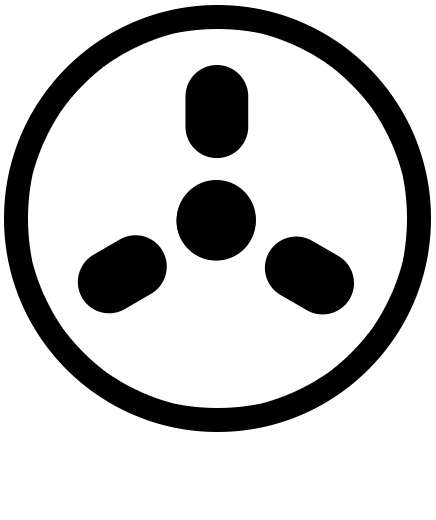
Marsha Vdovin is a photographer and PR Maven in San Francisco.
Archive photos courtesy of Leslie Ann Jones. www.skysound.com
